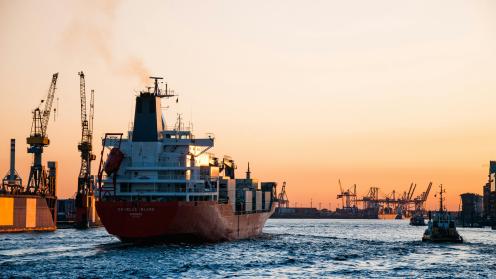Are we heading towards shipping leadership on climate or fossil-fuel lock-in?
Brazil and the EU must not miss the opportunity of a lifetime to switch to green fuels for global shipping
“EU appears to back down on carbon levy on international shipping” was the headline of a 27 March article in the Guardian ahead of the International Maritime Organisation’s in highly anticipated meeting in April which will decide whether to introduce a carbon levy and fuel standard for shipping which currently contributes 3% to global emissions. The EU had been supportive of a robust approach but now appears ready to join countries such as Brazil, China and Saudi Arabia in allowing companies to trade carbon credits rather than pay a universal levy based on the greenhouse gases their vessels emit.
We at the Green Hydrogen Organisation, GH2, are concerned that the introduction of a credit trading scheme would result in more use of fossil fuels, particularly LNG, and further delay the transition to green fuels.
Industry Demonstrates Green Ammonia Viability
If the IMO decides on robust measures to make renewable fuels, particularly green ammonia, commercially viable for international shipping, it is reasonable to have certainty that the technology is ready and that enough climate-friendly fuel can be supplied. Fortescue has demonstrated with the Green Pioneer, the first ocean-ready vessel ready to run on ammonia, that we have the technical solutions. In the report “Green Fuel Producers are Ready to Provide 10% of Marine Fuels by 2030” GH2 earlier this month documented that the industry is ready and willing to supply the green fuels needed if the IMO puts the right conditions in place.
Shipping will be more expensive for a while as the industry transitions to green fuels. My colleague Cynthia Kariuki together with James Mnyupe, Presidential Economic Advisor & Head of the Namibian Green Hydrogen Program wrote earlier this week that the IMO’s levy must be high enough to incentivise the uptake of green fuels, not include a credit trading component and crucially provide funding to lower income countries for their own just and equitable energy transition.
Aligning Climate Commitments with Policy Decisions
According to the Guardian, Brazil is one of the countries which has fiercely argued against a levy. At the same time, the country’s vice minister for climate change, the highly regarded Ana Toni has been touring Europe calling for climate action ahead of hosting the COP30 climate summit later this year. At GH2, we hope that her colleagues at the IMO negotiations are equally focused on robust climate action.
We have international rules and a clear mandate for international shipping. A levy, a meaningful charge on carbon emissions, can be introduced. The majority of countries support a strong set of IMO rules together with the shipping sector and climate campaigners. It would be a travesty if Brazil and the EU lend their votes to a compromise leading to more fossil fuels and less green fuels.
Jonas Moberg,
CEO, GH2
